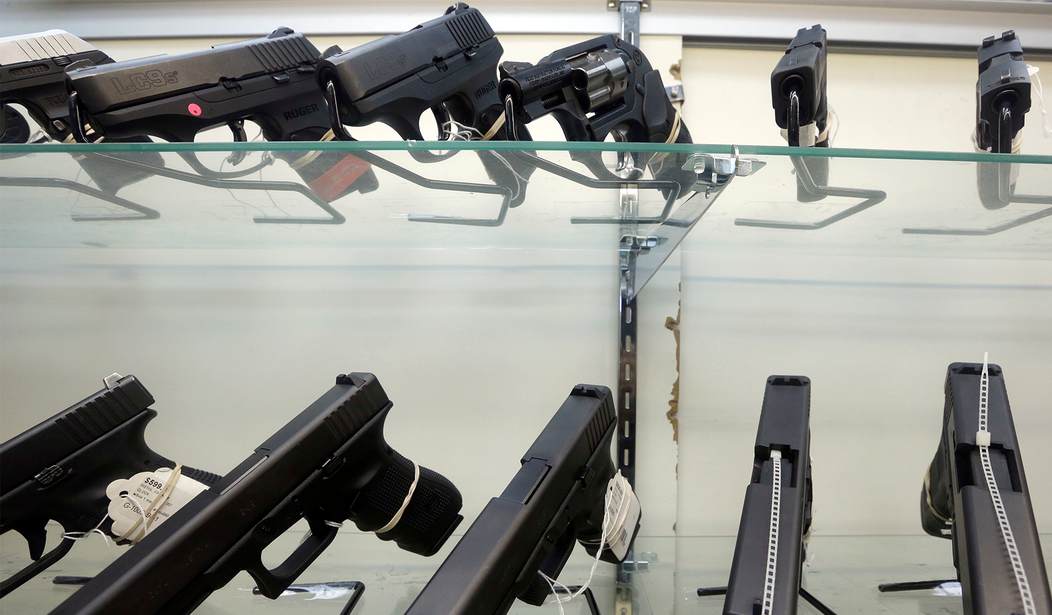This is huge. A federal judge recently ruled against a law that bars violent felons from owning firearms after they have served their time. The debate over whether violent felons should be able to keep and bear arms after paying their debt to society has raged for years. Regardless of which side one is on in this particular issue, this ruling further illustrates the profound impact that the Supreme Court’s decision in New York Rifle & Pistol Association v. Bruen has had on gun rights.
In the new ruling, U.S. District Judge Carlton Reeves dismissed a gun possession case against a convicted felon, arguing that felons have a Second Amendment right to own a firearm. Judge Reeves criticized a Supreme Court precedent from 2022 that expanded gun rights, but still abided by the ruling.
The case involved Jessie Bullock, who had served 15 years for a manslaughter conviction and was later indicted for possessing a firearm in his home. Judge Reeves noted the lack of historical evidence presented by both the government and Bullock, and suggested that state bans on firearms possession might be more defensible under the principles of federalism. Here is how it played out:
U.S. District Judge Carlton Reeves in Jackson ruled on Wednesday that permanently prohibiting Jessie Bullock from owning a gun because of a felony conviction would violate the right to bear arms under the Second Amendment of the U.S. Constitution because it was not consistent with the nation’s historical tradition of gun regulation.
But Reeves harshly criticized that standard, established last year by the Supreme Court in its landmark New York State Rifle & Pistol Association v. Bruen ruling, saying it offered “no accepted rules for what counts as evidence” in analyzing the historical tradition.
The judge said his ruling applied only to Bullock’s case, and did not strike down the federal law barring felons from owning guns. Judge Reeves specifically targeted the 2008 Heller decision authored by Justice Scalia, stating that the Court engages in “law office history” to fit their ideological priors. Despite his disagreement, Judge Reeves acknowledged that the standard set by the Court in the Bruen case must be enforced, and in this instance, the government failed to meet its burden to convict Bullock.
Although he agreed in this case with Bullock, Judge Reeves did so with biting criticism for the new historical method of interpretation espoused by the high court in Bruen and the justices’ “broad definition of the right to bear arms,” which the judge says began with the District of Columbia v. Heller decision in 2008:
Authored by Associate Justice Antonin Scalia, Heller held that one is guaranteed the right to bear arms in one’s home for self defense. In his opinion, Judge Reeves criticizes the Heller decision as well as the current justices’ methods for reaching their conclusions.
“Justice Scalia knew firsthand the risk of cherry‐picking briefs to support one’s ideological priors,” Judge Reeves declared. “Yet it appears that the Court continues to engage in ‘law office history’ — that is, history selected to ‘fit the needs of people looking for ammunition in their causes’ — in Constitutional interpretation.”
As stated previously, the issue of whether a convicted felon should have their Second Amendment rights restored after serving their time has been a contentious one. Those who believe these individuals should not be allowed to own firearms might argue against Reeves’ ruling, stating that it sets a dangerous precedent and undermines the efforts to maintain public safety.
These folks might suggest that by claiming that convicted felons have a Second Amendment right to own firearms, Judge Reeves is disregarding the reasonable restrictions and safeguards that exist to prevent individuals with a history of violence from accessing deadly weapons. According to them, allowing convicted felons to possess firearms poses a significant risk to society and disregards the well-being of potential victims.
On the other hand, those who favor the restoration of gun rights would assert that even convicted felons have a Second Amendment right to own firearms. They would view Reeves’ ruling as a bold and necessary step towards upholding individual rights and challenging the Supreme Court’s flawed interpretation of the Constitution.
As a liberty-minded person, I support the idea that self defense is a natural right that should not be forfeited after one has served their time. Even violent felons who engaged in criminal activity in the past have the right to defend their lives and property. On top of that, we have seen, time and time again, that if a violent felon wants to use a firearm to commit a crime, laws prohibiting them from doing so aren’t going to stop them. For those who have turned their lives around, it makes no sense to deprive them of the right to keep and bear arms.
In my estimation, this was the right ruling on the part of Judge Reeves, regardless of what he thinks about the Bruen decision.













